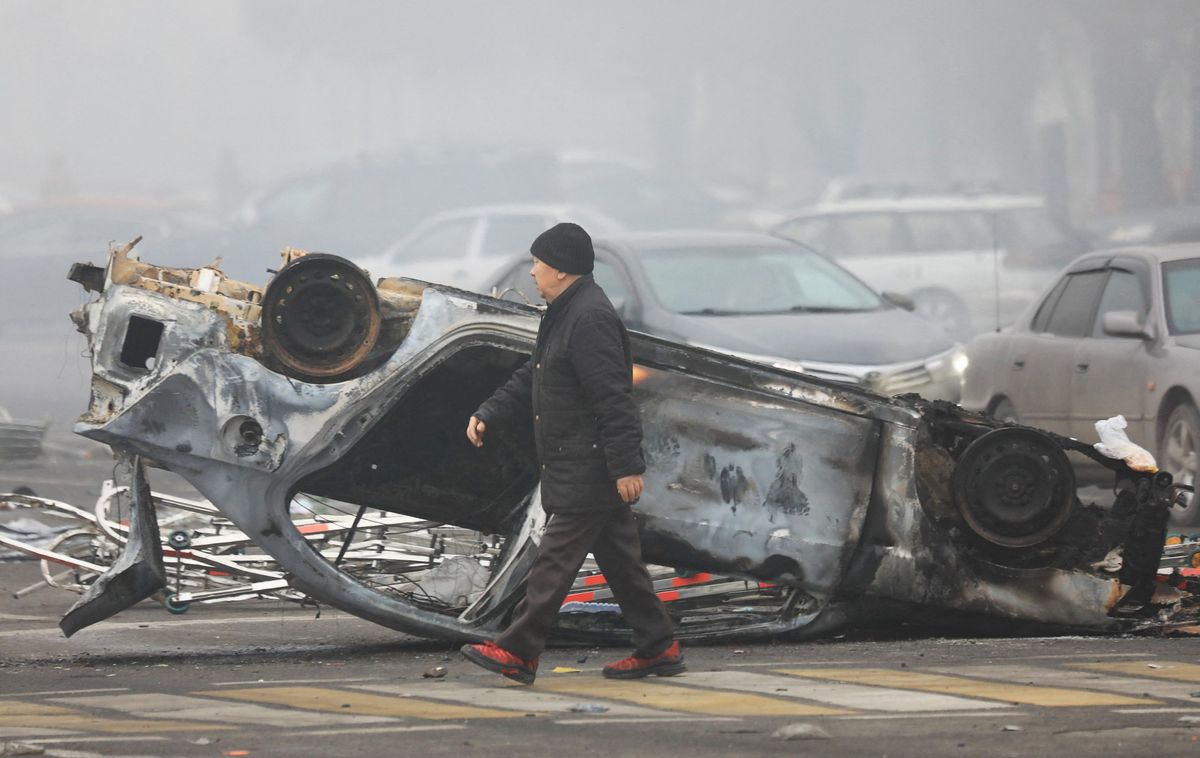Here’s what you need to know about what’s going on in Kazakhstan

A few minutes every morning is all you need.
Stay up to date on the world's Headlines and Human Stories. It's fun, it's factual, it's fluff-free.
In an attempt to ease the shortage, the government removed the price cap on the New Year, which backfired. Prices doubled and hit poorer communities the hardest.
- Kazakhstan is the richest economy in Central Asia and grew rapidly after becoming independent from the Soviet Union back in 1991. The country is also sort of seen as a bridge between markets like China and South Asia with those of Russia and Europe.
- Kazakhstan is also an oil and metal-rich country, being the top producer of uranium, the world’s ninth oil exporter and 10th largest producer of coal. It’s also the world’s second-largest miner of bitcoin after the Unted States.
- But the thing is, throughout the economic rise of this country, although it is the richest in the region in terms of income per capita, half of the population live in rural, isolated communities with minimal access to public services.
- About a million people (total population is 19 million) are estimated to live below the poverty line.
- Many poorer communities rely on butane and propane gas because they’re cheaper and commonly referred to as “road fuels for the poor." But the reason for those lower prices was because the government had price caps for them.
- But because of the artificially low prices domestically, energy companies, like Chevron Corp and Exxon Mobil Corp., preferred to export to sell higher internationally. Because of the consistent demand and the preference for producers to sell abroad, there was a constant domestic shortage.
- So in an attempt to ease the shortage, the government removed the price cap on the New Year, which backfired. Prices doubled and hit poorer communities the hardest.
- In the backdrop, annual inflation is running at close to 9%, the highest in more than five years, and the central bank has increased interest rates to 9.75%.
- This then sparked and snowballed an uprising, the worst the country has seen since its independence three decades ago. Dozens are dead and thousands are injured because what was initially over gas prices quickly exacerbated some other areas of discontent.
- On Wednesday, President Kassym-Jomart Tokayev declared a state of emergency for the country and vowed to take harsh measures to quell the unrest. The government resigned in response to the violence.
- At the request of Tokayev, Russia also sent over troops as a part of a “peacekeeping" mission Russia-led military alliance.
- This is the first time that the alliance, known as the Collective Security Treaty Organization (CSTO), a Moscow-led alliance of six former Soviet states – Russia, Armenia, Belarus, Kazakhstan, Kyrgyzstan and Tajikistan — has undertaken such major action since it formed 20 years ago.
You drive the stories at TMS. DM us which headline you want us to explain, or email us.




Comments ()